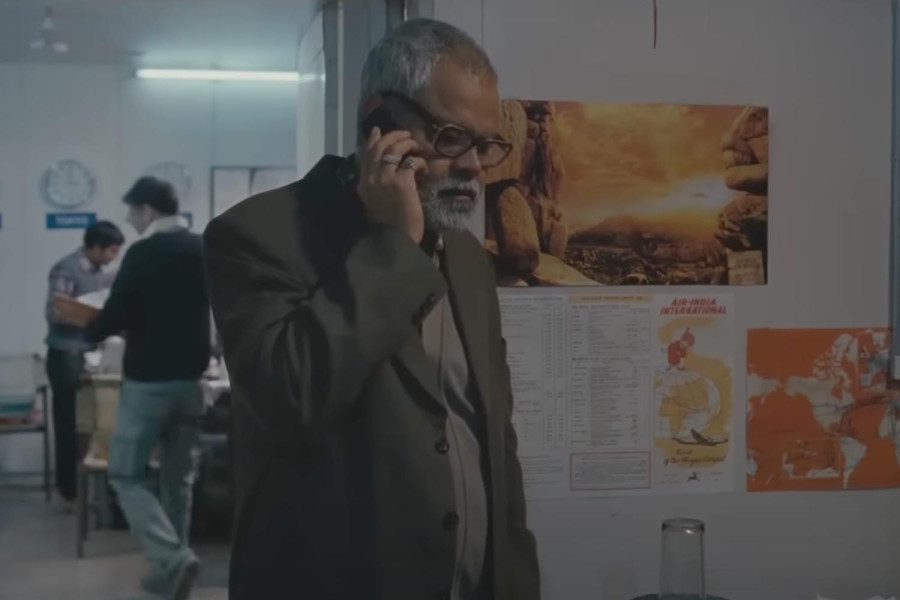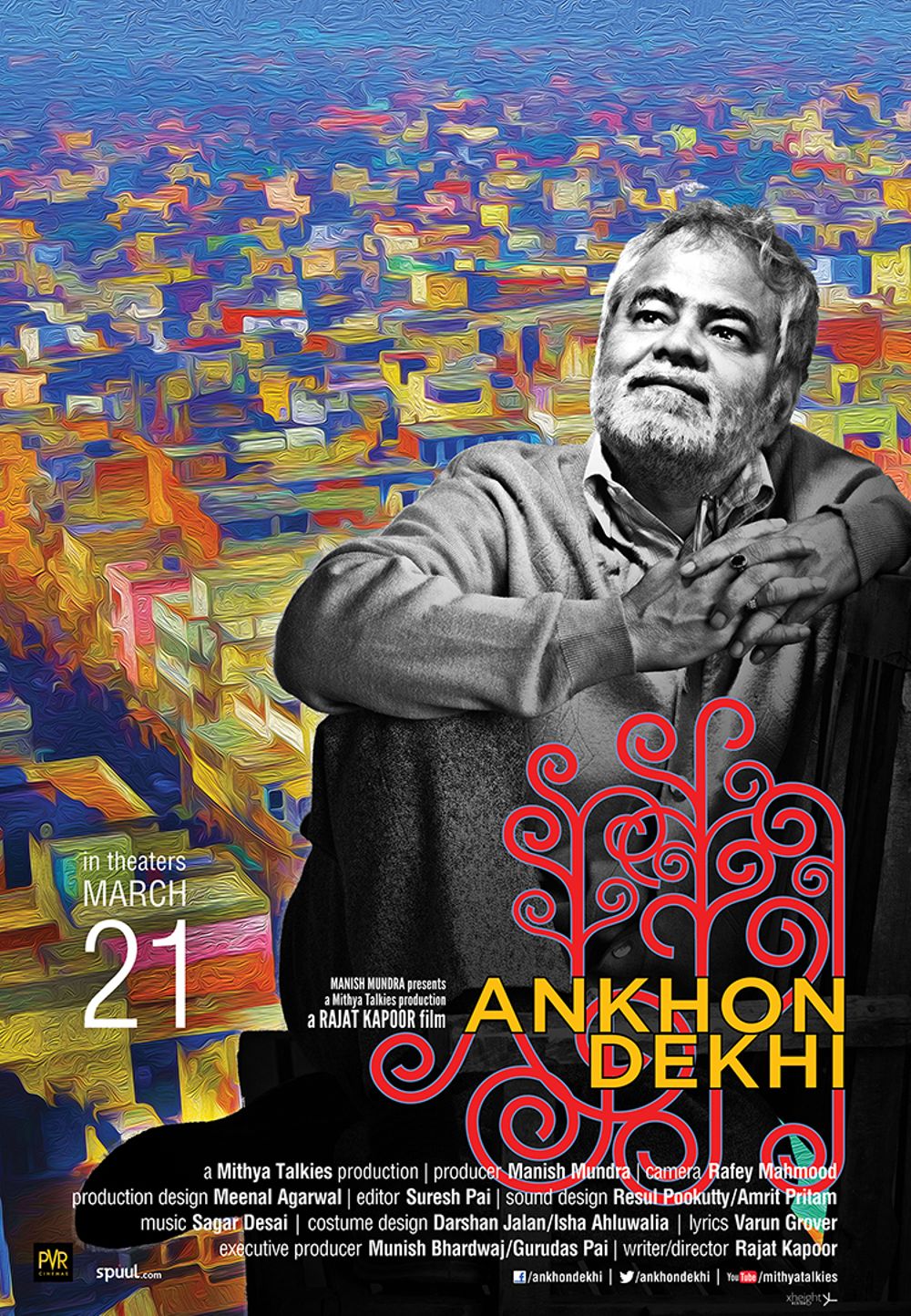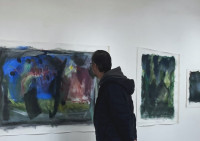Culture & Lifestyle
An old man’s search for meaning
Rajat Kapoor’s ‘Ankhon Dekhi’ blends humour and philosophy, challenging viewers to question their beliefs.
Timila Maharjan
‘Ankhon Dekhi’ is a 2013 Hindi film written and directed by Rajat Kapoor. He also plays Rishi, the younger brother of Sanjay Mishra’s character, Bauji. The movie begins with Bauji narrating a recurring dream in which he flies like a bird and feels immense joy. He mentions that an incident 18 months ago changed his life completely.
The story then moves to the past, showing an extended family living in Old Delhi. The family is upset with Bauji’s daughter, Rita, after she is caught sneaking out with her boyfriend, who has a bad reputation as a womaniser. Bauji’s younger brother, Rishi, scolds Rita and locks her in her room. After some discussion, the family confronts the boyfriend and threatens him.
When the family confronts the boyfriend, Bauji notices that the boy seems nice. He tears up and begs for forgiveness, which makes Bauji question their assumptions. Bauji believes that he would have reacted differently if the boy were truly as bad as they thought. This moment deeply impacts Bauji, and he decides to believe only what he sees and hears, giving the film its title, ‘Ankhon Dekhi’ (‘What the Eyes See’).
Following this decision, Bauji stops worshipping God and treats religious offerings as ordinary sweets. He also quits his job, which no longer aligns with his new beliefs. Bauji becomes increasingly idealistic, pushing his philosophy to extreme levels. This behaviour frustrates his family, leading to frequent arguments. Eventually, his younger brother Rishi decides to move out with his family, unable to cope with Bauji’s radical changes.
The neighbours see Bauji as a lunatic, but over time, a group of men becomes fascinated by his logical reasoning and starts following him. As Bauji continues his journey of self-discovery, he experiments with his philosophy in unusual ways, like getting involved in gambling and choosing not to speak for a few days.
Eventually, Bauji agrees to let his daughter marry the boy she loves and mends his relationship with his younger brother. He also distances himself from the neighbours following him, advising them to find their path instead of imitating him.

After his daughter’s marriage, he finds himself free from all responsibilities and gains a newfound clarity in life. To celebrate, he takes his wife on a vacation. During the trip, he tells her he feels as light and free as a bird soaring through the sky. His wife playfully remarks that he doesn’t truly know what flying feels like and suggests he must experience it firsthand, unintentionally challenging his perspective. Later that night, he walks towards a cliff. Bauji narrates the same dream that opened the movie. As the story concludes, he is shown flying off the cliff, accompanied by his narration: “There are still experiences left that I’ve only dreamed of, like this one—flying like a free bird. But this is real—the breeze, the sound of the wind—I am truly flying. This is reality.”
The film combines the philosophies of empiricism and deconstruction, crafting a narrative that questions the foundation of belief systems and our perception of reality. At its heart is Bauji, a character who takes the principles of empiricism to the extreme, insisting on accepting nothing as true unless he has experienced it personally. This uncompromising quest for direct knowledge strains his relationships and encourages viewers to reconsider the dependability of secondhand information and mediated truths.
Layered within this empirical quest is the influence of Derridean deconstruction, as the film subtly dissects societal norms, language, and preconceived notions of truth. Bauji’s journey becomes a metaphor for unravelling the structures that define our reality, revealing that truth, much like language, is slippery and open to interpretation.
This dual philosophical grounding pushes viewers to question not just what they see but also how they see it, creating a cinematic experience that is both thought-provoking and transformative. The film ultimately invites us to rebuild our understanding of the world on a foundation of personal inquiry and critical thinking through humour, drama, introspection, and brilliant acting.
The journey of Bauji in the movie can be interpreted as a metaphorical reflection of the Buddha’s path to enlightenment, with each stage of his transformation paralleling key milestones in the Buddha’s spiritual journey.
At the outset, Bauji lives an ordinary life, immersed in the routines and concerns of a typical household. This stage mirrors the Buddha’s early life within the confines of the palace, where he was shielded from the world's harsher realities.
The turning point for Bauji arrives when he meets his daughter’s lover, which shakes his perceptions and compels him to question the meaning of life and his role in it. This awakening is akin to the Buddha’s encounter with suffering, pain, and death beyond the palace walls, which ignited his quest for truth.
As Bauji delves deeper into his existential inquiries, he gradually withdraws from speech, immersing himself in introspection. This phase echoes the Buddha’s retreat into meditation under the Bodhi tree, where silence became a vessel for understanding profound truths.
In the next stage, Bauji begins sharing his newfound realisations with the world, holding up pamphlets in the streets to spread his message. This act parallels the Buddha’s role as a teacher, travelling far and wide to share the insights of his enlightenment with others.
Finally, Bauji’s climactic leap from the cliff, fulfilling his dream of flying, can be seen as his moment of liberation—symbolising moksha, the ultimate release from the cycle of life and death. This act resonates with the Buddha’s attainment of Nirvana, a state of ultimate freedom and peace.
Bauji’s transformation, much like the Buddha’s, is a journey from ignorance to awakening, from questioning to understanding, and ultimately to transcendence. This narrative beautifully intertwines human struggles with the pursuit of higher meaning.
Ankhon Dekhi
Director: Rajat Kapoor
Starring: Sanjay Mishra, Rajat Kapoor, Seema Pahwa
Duration: 101 minutes
Language: Hindi
Available: Prime Video, Lionsgate Play, Yupp TV
Year: 2013




 9.2°C Kathmandu
9.2°C Kathmandu















